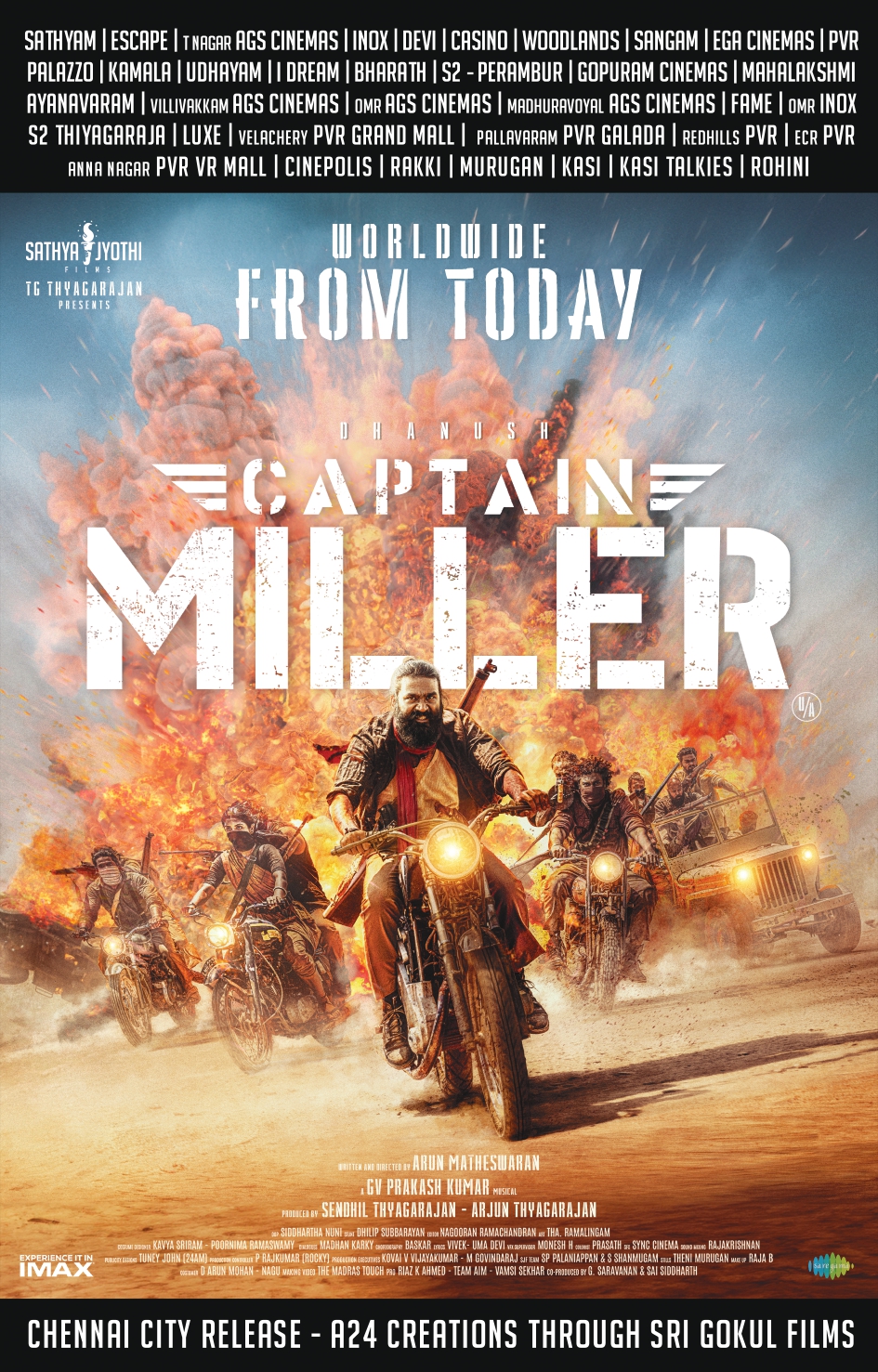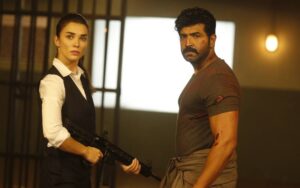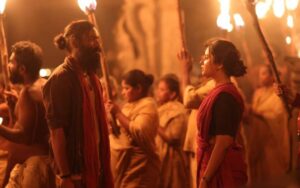Review: Taramani
Director: Ram ; Cast: Andrea Jeremiah, Vasanth Ravi, Anjali, Azhagam Perumal and others

Film: Taramani
Director: Ram
Cast: Andrea Jeremiah, Anjali, Vasanth Ravi, Azhagam Perumal
Music: Yuvan Shankar Raja
Cinematographer: Theni Easwar
Taramani is a story that touches upon several social issues.
Starting with how the greed of urban developers has cost this city its water bodies, to the daily dose of troubles that our fishermen on the Rameshwaram coast face from marauding Sri Lankan Navy vessels to the highly stressful lives our powerless, unionless employees from the IT sector lead, the film touches upon a number of sensitive issues.
But more importantly, it tells the love story of Althiya Joseph (Andrea Jeremiah),a divorcee working in a corporate office, and Prabhunath (Vasanth Ravi), a once-upon-a-time call centre executive who is now a vagabond. And through their story and the other characters that are associated with them, it looks to drive home the simple message that every man (for the sake of political correctness, there is one instance in the film where they say several instead of all men) out there in society is a lecherous, cheating, opportunistic, harassing, abusive parasite who preys on women, who are invariably kind and honourable.
Althiya, the lead character of this film, is the epitome of nobleness. She is so noble that the moment she finds her husband is gay, she has a consoling talk with him and agrees to part ways with him amicably. In fact, she even goes to the extent of asking her husband to blame her for the divorce. “I know the difficulty associated in saying you are gay. So, blame it on me. Say anything you want. Say I was sleeping around with my boss and therefore we parted ways,” she offers helpfully. She is so noble that she does not know where her former husband currently is. What about alimony, child support, maintenance, you ask? Er… well, that part Ram chooses to ignore and comfortably at that, I might add.
Moving on, her boyfriend, on the other hand, we are told like how all other boyfriends are, is a prying, suspicious, abusive, temperamental parasite who clings on to her at the first given opportunity.
The story, which starts with how Althiya meets Prabhu, moves on to show how they fall in love and then finally tells you what happens when a woman lets a man into her life.
The film is so masterfully made that it sub-consciously drives home the point that no matter what, women are always noble and even if they behave in a manner that comes across as being ruthless or anti-social on occasions, it is primarily because they have been driven to behave like that by the men around them. Simply put, men are the problem – always! The other part of that message is, women are the victims – always!! Phew! So much for objectivity!
Ram is a master story teller and he tells this story with a flourish. His occasional commentaries to ensure that audiences take note of certain points he is making through a sequence and think about it the way he wants them to think is just brilliant.
Casting wise, Ram couldn’t have got it better. Andrea delivers a stunning performance and Vasanth Ravi as Prabhu matches up to her, scene-for-scene. Both have different personalities to showcase and yet both deliver powerful performances in their own distinct ways. Andrea’s performance endears her character to one and all while Vasanth Ravi’s makes audiences loathe him.
The film has good performances coming in from Azhagam Perumal and a decent performance from Anjali as well. But the film’s biggest strength lies in its camera work. The film has several scenes that are classy in the truest sense of the word. Some of the aerial shots that the film features deserve special mention. Cinematographer Theni Easwar has every reason to be proud of his work in this film.
Yuvan Shankar Raja is truly a master of romantic melodies and he delivers in this one too. His romantic numbers are stunning. However, when it comes to background score, there are problems. There are some scenes in which the background music is so loud that one can hardly hear the dialogues being spoken.
Having said all that, there is a warning I must issue to my readers. There is a good chance that some of you might find portions of this film to be either repulsive, sexist or objectionable. Some of you may find the film to be all of these.
The irony is that nobody from the Censor Board found anything objectionable about certain scenes that making sweeping generalisations based on gender. In other words, some of the dialogues are downright sexist.
Just to put across the point I’m making, there’s this scene in which Andrea is having a conversation with a friend at a pub. During the course of the conversation, Andrea tells her friend, “You are lucky. You have got a good husband.” Her friend responds saying, “Dogs la ennadi nalla dog, ketta dog. Dogs are dogs. Correcta biscuit podanum.” (In dogs, what’s a good dog or a bad dog? Dogs are dogs. You just have to feed them the correct biscuits.)”
Stunned? I was. For this dialogue is bound to hurt the sentiments of any self-respecting individual.
However, our censor board officials didn’t find it demeaning or derogatory. Ah, but to be fair to the officials who reviewed this film, they must have thought that it only insults and degrades men. Nobody gives a damn about men in this country. So, why must we alone bother? Ain’t that right, CBFC?





